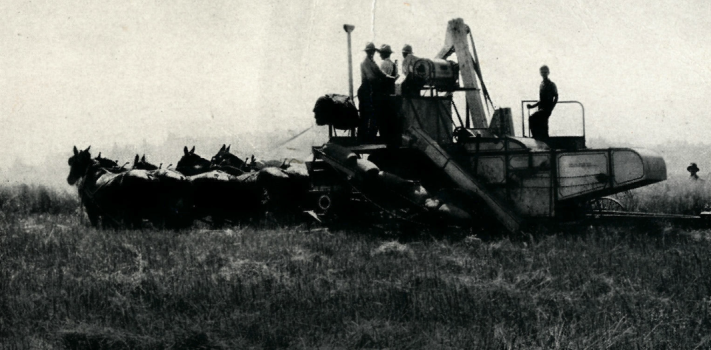by 3AD Scout, Survival Blog:

Humans are no strangers to catastrophe. Through the centuries, civilizations across the earth have succumbed to volcanic eruptions, earthquakes, floods, plagues, and crop failures. Regardless of where this took place, or the people it affected, there was a rebuilding of society and life went on.
For many of us, we focus on surviving the immediate effects of disaster or catastrophe, but few focus on what comes next, the recovery or rebuilding phase. Just like being prepared to survive the immediate impacts of an incident starts in the years long before the disaster ever strikes, so does preparing for rebuilding our community. Let us explore some strategies for being better prepared to rebuild society after the end of the world as we know it (TEOTWAWKI).
TRUTH LIVES on at https://sgtreport.tv/
THE IMPORTANCE OF RECOVERY PREPAREDNESS
Humans are, for the most part, a very sociable race and this has allowed us to build complex societies, that have come to a point, where we enjoy the most leisure time in human history. Diseases responsible for keeping the average life expectancy in the 40s to 60s are now rare and it is common for people to live into their 80s, 90s, and even over 100. Clean water and sewage treatment have also aided in adding to our life expectancy. The Information Age has made it quick and easy to find information and to learn skills at a faster pace. An event, that ends the world as we know it, will erase about 150 years of progress and with it will bring back diseases, more injuries and deaths due to reverting back to manual labor and free time will be a sparse luxury. To clarify, I am not talking about tornadoes or floods but rather large-scale incidents like a coronal mass ejection (CME), electromagnetic pulse (EMP), or other events whose impacts are long-lasting and felt across much of the globe.
Just like we prepare by storing food and water for incidents, we can make preparations to help ensure our survival in the long term. For the most, part we all have skills that help us survive today, these skills allow us to have jobs that pay our bills, put food on the table, and supply electricity for all the gadgets that make our life so simple and easy. We need to make sure we have skills that will also be in high demand post-TEOTWAWKI. We also need to make sure we are properly outfitted with the tools and supplies to do these post-TEOTWAWKI jobs without today’s technology.
I have been prepping for decades and one can only put away so many buckets of rice and beans before the wheels in your head start questioning whether preparing by growing and raising your own food supply is a better option than 10 more buckets of rice. Being able to grow and raise your own food is only one skill set. In order to grow and raise your own food post-TEOTWAWKI, there will be several other skill sets and tools needed to support the food production tasks. For example, farming without modern tractors, caused by lack of fuel or fried computers, may require the use of horses and/or oxen to pull plows and other farm machinery. Unfortunately, many of the farming implements around today are designed to be pulled by tractors that have three to four hundred horsepower. One or two oxen will not be able to pull a modern 8-bottom plow all day that weighs around 6,000 pounds.
Having skills to either modify current farm implements or to build farm implements will be needed. Skills to make the harnesses and horse collars to put on draft horses or oxen and how to tan leather for those harnesses will be needed. Along with the harnesses, there will be a need to forge metal and fashion wood to make singletrees, yokes, and other hitches needed to hitch horses or oxen to the implements. Then there are the tools, skills, and supplies necessary to keep horses shod. These are just a few examples to demonstrate that food production is very dependent upon other skills to produce the accouterments needed to support food production.
History should be our guide as to what professions will be needed to rebuild civilization. When we look back into history before the Industrial Revolution or even just pre-1900s, agriculture ruled the economy. Common jobs included coopering, millers, blacksmithing, wheelwrights, wagon making, tailoring, cobblers, sawyers, apothecaries, chandlers, glass blowers, tinsmiths, foundry workers, the many construction trades, and all the jobs in the service industry like shop and innkeepers.
Many of these jobs today are obsolete, or are vastly different, due to technological advances. Wheat is still milled into flour. But instead of a local Miller operating a local mill that grinds the wheat between two large grinding stones powered by water or wind, electric motors and modern grinders are used. Many of these old trades are now considered more like crafters who make ornamental or “chic” products. A prime example is glass blowers. Some of these trades are still in use in Amish communities such as wheelwrights and buggy making.
Learning old-world skills may be relegated to learning by reading and then implementing to actually develop the skill. YouTube has some good information on developing some long-lost skills as well. I recently started watching YouTube videos on “Coopering” or wooden barrel making. Wooden barrels were the tin cans and plastic wraps of the Nineteenth Century. Another source of long-lost skills is local historical societies that often sponsor groups that will teach people some of these old ways. One of our small local historical societies has a flint knapping group that meets and teaches people how to shape flint into arrowheads, knives, and other useful objects. This same historical society also has a small blacksmith shop for educational purposes and hosts a primitive skills weekend.



